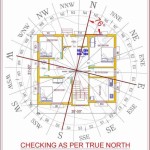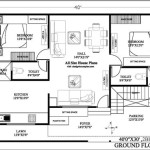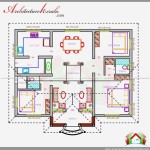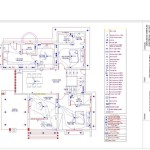Biggest Building Plans: A Look at Ambitious Architectural Projects Worldwide
The realm of architectural ambition knows no bounds. Across the globe, developers, architects, and governments are constantly pushing the limits of engineering and design to conceive and construct structures that redefine the skyline and reshape the urban landscape. These “biggest building plans” not only represent immense financial investments but also showcase innovative technologies, sustainable practices, and the audacious vision of human ingenuity. This article explores some of the most significant and impactful large-scale building projects currently underway or planned, delving into their purpose, scale, and anticipated impact.
Expanding Urban Capacity: Vertical Cities and Megastructures
As populations continue to swell and urban sprawl encroaches upon valuable land, the concept of the "vertical city" gains increasing traction. These megastructures seek to consolidate living, working, and recreational spaces into self-contained environments, optimizing land use and minimizing environmental impact. Projects like NEOM's "The Line" in Saudi Arabia exemplify this trend. Designed as a linear city stretching 170 kilometers, The Line aims to house millions of residents in a car-free, sustainable environment powered entirely by renewable energy. The structure will consist of two parallel skyscrapers, 500 meters tall, creating a unique urban ecosystem.
The sheer scale of The Line presents unprecedented engineering challenges. Constructing a structure of this length and height requires advanced materials, efficient construction techniques, and sophisticated logistical planning. Furthermore, ensuring the well-being and social cohesion of its inhabitants requires careful consideration of community design, transportation, and access to essential services. The project aims to create a sustainable and livable environment that minimizes its environmental footprint and promotes a high quality of life for its residents.
Other notable examples of vertical city concepts include potential future iterations of the Burj Khalifa in Dubai. While current development plans remain confidential, speculation abounds regarding future projects potentially exceeding the Burj Khalifa’s height. These projects often involve ambitious integration of mixed-use spaces, including residential units, commercial offices, retail outlets, and recreational facilities. The integration of these diverse functions aims to create vibrant and self-sufficient urban ecosystems, reducing the need for extensive commuting and promoting a sense of community.
Enhancing Infrastructure and Connectivity: Transportation Hubs and Bridges
Beyond vertical expansion, infrastructure development plays a crucial role in facilitating economic growth and connecting communities. Large-scale transportation hubs, such as airports and train stations, are often conceived as architectural landmarks, offering travelers a seamless and aesthetically pleasing experience. The expansion of existing airports and the construction of entirely new ones often involve massive building plans, incorporating state-of-the-art technologies and sustainable design principles.
The New Istanbul Airport, for example, is one of the world’s largest airports, with an eventual capacity of 200 million passengers per year. The airport’s design incorporates advanced security systems, automated baggage handling, and spacious terminals that prioritize passenger comfort. The project involved overcoming significant logistical challenges, including the relocation of entire villages and the construction of extensive infrastructure to support the airport’s operations. This ambitious project serves as a critical transportation hub connecting Europe, Asia, and Africa.
Bridges also represent significant engineering feats and play a vital role in connecting regions and facilitating trade. The Hong Kong-Zhuhai-Macau Bridge, the world’s longest sea crossing, is a prime example of ambitious bridge construction. This massive infrastructure project involved constructing a series of bridges, tunnels, and artificial islands, connecting Hong Kong, Zhuhai, and Macau. The bridge has significantly reduced travel time between these major economic centers, fostering economic growth and integration.
Ongoing bridge projects, such as the Fehmarnbelt Fixed Link connecting Denmark and Germany, also represent substantial infrastructure investments. This immersed tunnel will significantly reduce travel time between Scandinavia and continental Europe, facilitating trade and tourism. The project involves complex engineering challenges, including the construction of massive tunnel segments and the mitigation of environmental impacts on the surrounding marine ecosystem.
Promoting Cultural and Economic Development: Mixed-Use Developments and Entertainment Centers
Large-scale mixed-use developments and entertainment centers play a crucial role in promoting cultural and economic development. These projects often involve the integration of retail spaces, hotels, residential units, and entertainment venues, creating vibrant urban destinations that attract tourists and stimulate economic activity. The development of these projects requires careful planning and coordination, often involving public-private partnerships and extensive community engagement.
The Resorts World Sentosa in Singapore is a prime example of a large-scale entertainment center that has significantly boosted the country’s tourism industry. This integrated resort features hotels, casinos, theme parks, and marine life attractions, attracting millions of visitors each year. The project involved extensive land reclamation and the construction of state-of-the-art facilities, creating a world-class entertainment destination.
The Hudson Yards development in New York City is another notable example of a large-scale mixed-use project. This massive development involved the construction of skyscrapers, parks, and public spaces on a platform built over a rail yard. The project has transformed a previously underutilized area into a vibrant urban center, offering a mix of residential, commercial, and retail spaces. The development has also incorporated sustainable design principles, including energy-efficient buildings and green infrastructure.
The construction of these large-scale mixed-use developments often involves significant challenges, including complex permitting processes, environmental regulations, and community concerns. Developers must carefully navigate these challenges to ensure that the projects are economically viable and socially responsible. The success of these projects depends on creating a cohesive urban environment that meets the needs of residents, businesses, and visitors.
Beyond specific examples, several overarching trends are shaping the biggest building plans of the future. Sustainability is becoming an increasingly important consideration, with developers incorporating renewable energy sources, energy-efficient designs, and green infrastructure into their projects. Technology is also playing a key role, with advancements in materials science, construction techniques, and project management enabling the construction of increasingly complex and ambitious structures. Furthermore, there is a growing emphasis on creating inclusive and accessible environments that meet the needs of diverse communities. The integration of universal design principles and the provision of affordable housing are becoming increasingly important considerations in large-scale building projects.
The planning and execution of these massive building projects require meticulous attention to detail, sophisticated project management, and close collaboration between various stakeholders. Architects, engineers, contractors, government agencies, and community representatives must work together to ensure that the projects are completed safely, efficiently, and in a manner that benefits the surrounding community. The successful implementation of these projects depends on effective communication, transparent decision-making, and a shared commitment to achieving a common goal.
Ultimately, the "biggest building plans" represent the aspirations and ambitions of societies to create a better future. These projects not only transform the physical landscape but also shape the way people live, work, and interact with their environment. By embracing innovation, sustainability, and inclusivity, these projects can contribute to creating more vibrant, resilient, and equitable communities for generations to come. The ongoing pursuit of architectural and engineering excellence will continue to push the boundaries of what is possible, leading to the development of even more ambitious and impactful building projects in the years ahead.

World S Tallest Proposed Buildings Mega Constructions Process Industry Forum

List Of Visionary Tall Buildings And Structures Wikipedia

N Developer Plans To Build World S Tallest Tower Business Economy And Finance Emirates24 7

Plans For The Tallest Building In Us Are Underway And It Isn T Nyc

Iraq Reveals Plans To Build World S Tallest Tower

Pin Di Architecture

Tallest Buildings

China S Tallest Building As Gg Reveals Plans For 700 Meter Skyscraper

China Firm Plans To Erect World S Tallest Building In Seven Months 2024 07 30 Enr Engineering News Record

World S Tallest Building Half Built Abandoned After 10 Years As Plans Drawn Up To Finish Tower 3x Taller Than Shard The Sun








